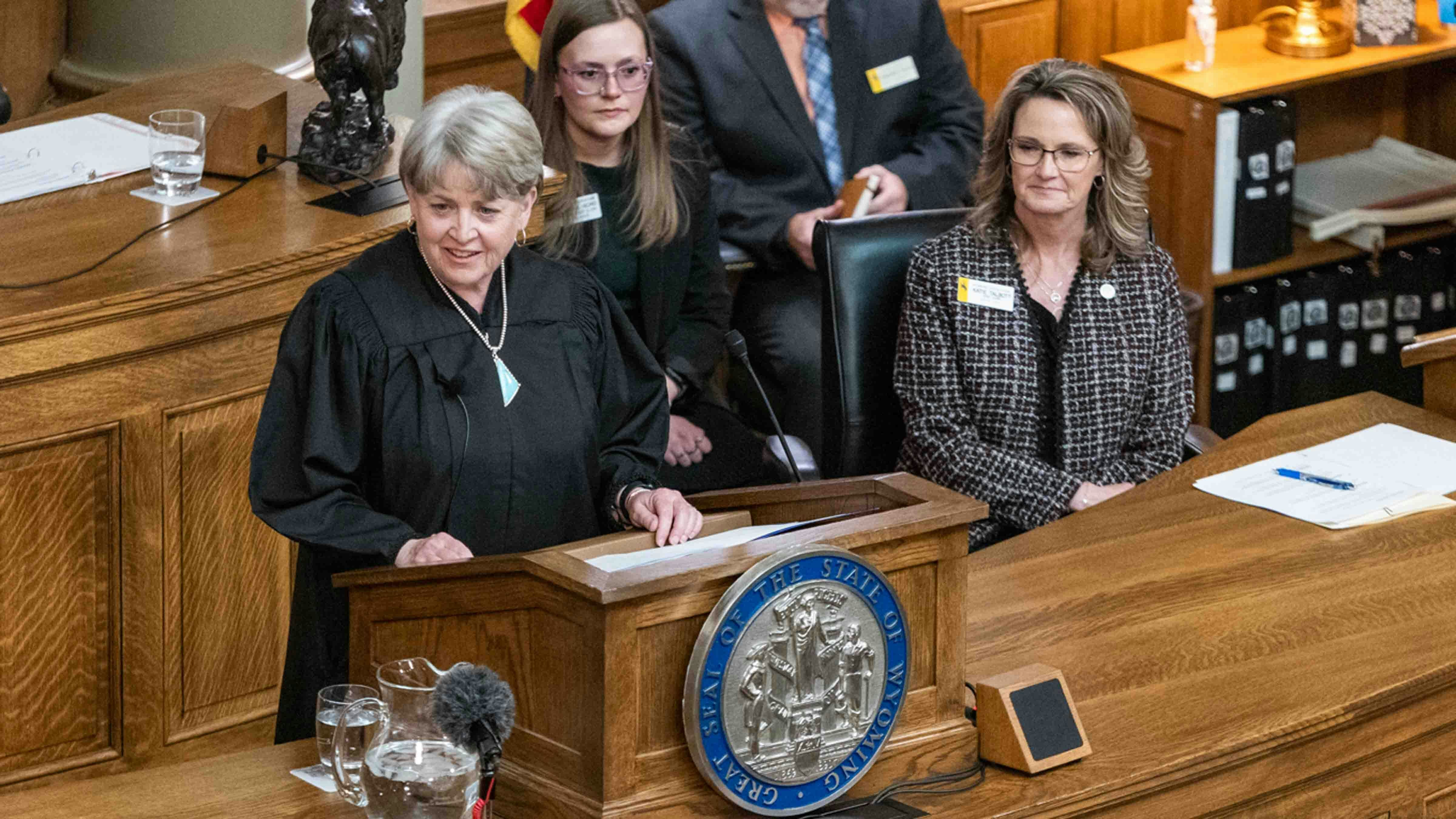The Wyoming Supreme Court is considering whether the state can keep $54,226 in suspected drug money it took from a Wamsutter man who was convicted of misdemeanor-level cocaine possession.
Ronald Mickulin, 76, pleaded guilty last February in Rawlins Circuit Court to possessing a misdemeanor amount of cocaine. He was sentenced to 20 days in jail plus a year of probation, and ordered to pay a $250 fine and other court costs and fees.
But in the course of a Rawlins traffic stop where his rear taillights weren’t operational, plus a later arrest and warrant search, police found $54,226 in Mickulin’s Honda Civic, according to court documents. That arrest was Oct. 22, 2023.
Two months later, Senior Assistant Attorney General Kellsie Singleton filed a request for “forfeiture,” or for the court to let the state of Wyoming keep his money since it was believed to be drug money.
The Wyoming Division of Criminal Investigation (DCI) already had information Mickulin was dealing drugs around Carbon County as early as August 2023, before his fateful traffic stop, says the forfeiture petition.
Then-Sgt. David Greninger of the Rawlins Police Department caught Mickulin trying to cover a glass vial with his wallet during the stop, says the state’s petition.
Mickulin admitted when asked that the vial contained cocaine, the document says. Investigators later found psilocybin mushrooms and suspected marijuana in the same car.
Later in a police interview, Mickulin admitted to a DCI agent that he had drug connections in Rawlins and in Salt Lake City, and that he’d provide heroin to “good people,” says the petition.
But, he said, around half of the cash in his car was from cashing out his 401K. The other half he admitted was from selling cocaine and heroin, Singleton wrote.
The state’s petition asks for the authority to keep all the cash, however.
Mickulin told the DCI agent he hid all his savings in his car because a heroin junkie broke into his house once and stole $5,000.
The state alleges the money was part of a drug conspiracy, and says its request to keep all the money is “not grossly disproportionate to the gravity of the offense” that led to this request.
Not El Chapo
Mickulin argues just the opposite.
A brief he filed in September via his attorney Andrew Holcomb of Holcomb Law LLC calls the state’s bid for the money “disproportionately excessive.”
At the traffic stop and search that followed, police only gathered $200-$250 worth of drugs: about 0.3 grams of cocaine, 4 grams of magic mushrooms and less than half an ounce of marijuana, says the brief.
The government is asking for ownership of 240 times that amount by asking the courts to let it keep Mickulin’s more than $54,000 in cash.
Mickulin’s misdemeanor charges and conviction don’t uphold the huge conspiracy the state is alleging, argues Mickulin’s brief.
“Not only has the State never filed such conspiracy charges and survived a probable cause hearing against (Mickulin), but the State also fails to mention where and when this conspiracy was formed, let alone naming a co-conspirator,” it says.
The small amount of drugs found with Mickulin don’t indicate a “grand conspiracy,” Holcomb added.
The attorney argued in the brief that the state’s claim on Mickulin’s money is an excessive fine of the kind the Eighth Amendment to the U.S. Constitution prohibits.
On A Fixed Income
Mickulin is a “retiree that lives in Wamsutter, Wyoming, who possessed user-amounts of benign party drugs,’” wrote Holcomb. “That is a far cry from the El Chapos and Pablo Escobars, whose criminal enterprises are the actual class of individuals forfeiture laws were designed to target.”
Mickulin is on a fixed income and receives a modest Social Security retirement check. The $54,000 is his livelihood, and includes his retirement checks, insurance payouts and Social Security checks, Holcomb wrote. He noted that Mickulin’s check stubs and retirement and insurance payouts were part of the evidence pool in this case.
“Depriving him of such when he is no longer in a position to provide for himself implicates the hisotrical concerns underlying the Excessive Fines Clause,” the brief adds.
It says a DCI agent testified that investigators recovered “absolutely zero evidence” of a drug conspiracy on Mickulin’s phone.
“He pled to the crime and served his time,” wrote Holcomb. “Yet, the State was not satisfied with its pound of flesh from (him) and hopes for a second bite out of the proverbial apple by depriving him of his retirement savings.”
Drug ‘Proceeds’
Singleton in her closing brief in this case, also filed in September, noted that police seized Mickulin’s money as part of an arrest and search warrant, and argued that the money was used in dealing drugs.
“Mickulin admitted to the possession of cocaine, and (DCI) Special Agent (Eric) Ford testified Mickulin admitted to traveling to Utah ‘for awhile’ to obtain controlled substances,” Singleton wrote.
Mickulin said he had drug sources in Wyoming and admitted at least some of the moneywa s from selling drugs. Another man testified in the forfeiture case that he bought drugs from Mickulin and witnessed Mickulin packaging and selling drugs, says the document.
Mickulin’s only lawful income at the time of the seizure was his Social Security payout of $1,400 a month. His monthly expenses were close to $1,400, and he’d been retired since 2012.
Bank transactions showed regular trips and withdrawals of cash in Utah, the document says.
This case involves a large amount of money, without any showing of a legitimate income that could have fed it, wrote Singleton.
“Mickulin hardly received enough Social Security to cover his bills, let alone save $54,226,” she added. “Additionally, he admitted some of the currency was, in fact, (drug) proceeds.”
Though Mickulin was only convicted of a misdemeanor, the witness in the forfeiture case described the man dealing cocaine, says the document, which is a felony in Wyoming punishable by up to 10 years in prison.
Clair McFarland can be reached at clair@cowboystatedaily.com.





